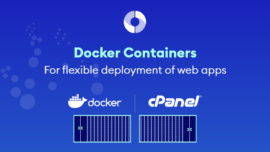Experiencing an HTTP error 500 can be a daunting obstacle for any website owner. This common yet critical error “Currently unable to handle this request. http error 500” signals that something has gone awry with the website’s server, but pinpointing the exact cause requires a strategic approach. In this article, we provide effective solutions to navigate and resolve HTTP Error 500, ensuring your website remains functional and accessible.
Identify the Source of the Error
Before diving into solutions, understanding the origin of the error is crucial. HTTP Error 500 is an error originating from the server unable to execute your website’s code.This error can result from various factors, including script errors, server misconfigurations, or insufficient server resources.
Effective Solutions to Combat “Currently unable to handle this request. http error 500”
- Check Your Website’s Logs
The first step in troubleshooting is to consult your website’s error logs. These logs provide detailed insights into what went wrong and can guide you towards a specific solution. Usually the logs are located on:
/etc/apache2/logs/error_log
/var/log/apache2/error_log
Or inside your website’s root folder public_html/error_log
- Increase Server Resources
If your website has outgrown its current hosting plan, upgrading your server resources might be necessary. This includes increasing memory limits, processing power, and storage capacity.
An easy solution you can try is to increase memory_limit on your php.ini file and restart your web server.
- Debug Website Scripts
For websites relying heavily on plugins, ensuring they are error-free is essential. Debugging your website’s plugins can uncover any underlying issues causing the server to return an HTTP Error 500.
If you recently updated or installed a plugin, try deactivating it and see if that solves your problem.
- Review Server Configuration Files
Misconfigurations in server files, such as .htaccess for Apache servers, can lead to HTTP Error 500. Reviewing and correcting these configurations can often resolve the issue.
You may try renaming .htaccess to a different file name and see if that makes your website work.
- Contact Your Hosting Provider
Sometimes, the problem may be beyond your control, necessitating intervention from your hosting provider. They can offer specific insights and solutions based on their infrastructure.
Preventing Future HTTP Error 500 Issues
Prevention is always better than cure. Regularly updating your website’s software, keeping the number of plugins low and choosing a reliable hosting provider can significantly reduce the likelihood of encountering HTTP Error 500.
Additionally, implementing a robust monitoring system will alert you to any issues immediately, allowing for quick action before they impact your website’s visitors.
Conclusion
HTTP Error 500 can significantly impact your website’s accessibility and user experience. However, by understanding the potential causes and implementing the solutions outlined above, you can navigate these challenges effectively. Remember, regular maintenance and monitoring are key to preventing such issues and ensuring your website runs smoothly.
